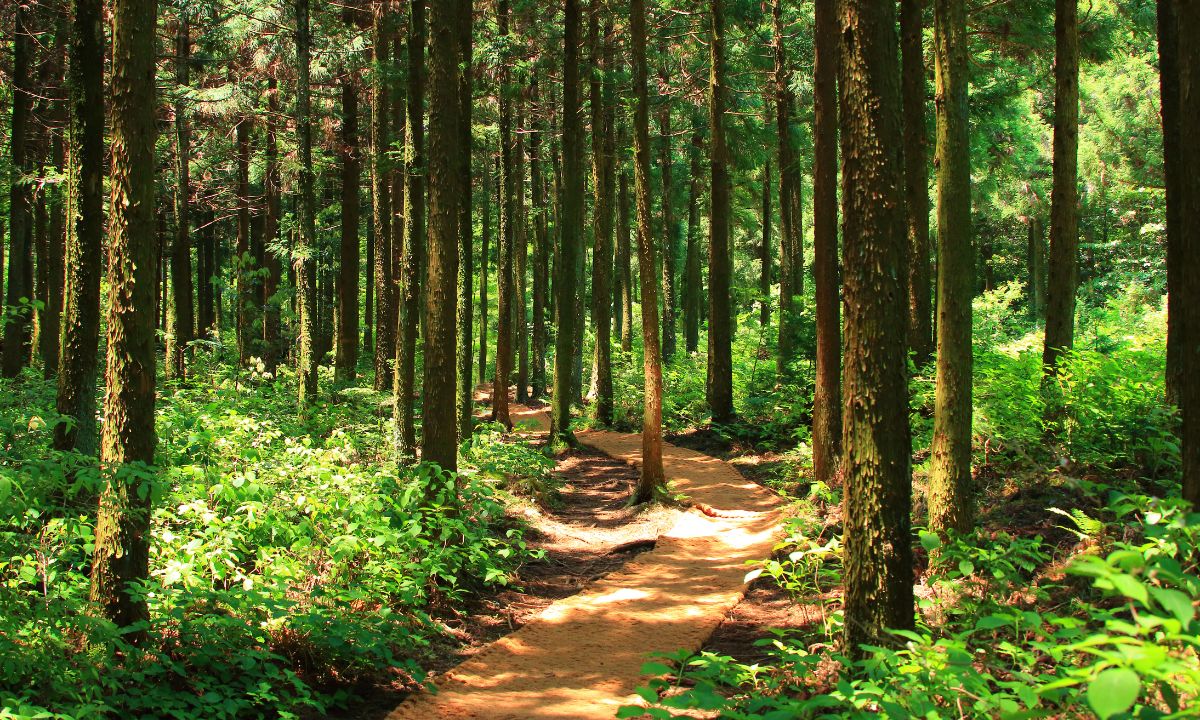Forests are not merely a collection of trees; they are intricate ecosystems that play a vital role in sustaining life on Earth. From regulating the climate to harboring a vast array of biodiversity, forests are indispensable to the health of our planet. In this article, we delve into the multifaceted roles that forests play in climate regulation and biodiversity conservation, emphasizing their significance and the urgent need for their preservation.
Climate Regulation: Earth’s Natural Air Conditioners
Carbon Sequestration
Forests act as crucial carbon sinks, absorbing carbon dioxide (CO2) from the atmosphere through the process of photosynthesis. Trees utilize CO2 to produce oxygen while storing carbon in their biomass and soil. This carbon sequestration helps mitigate the greenhouse effect, thereby reducing the impacts of climate change.
Albedo Effect
The dense canopy of forests reflects sunlight, thus reducing the amount of solar radiation absorbed by the Earth’s surface. This phenomenon, known as the albedo effect, helps in cooling the planet and maintaining climatic stability.
Water Cycle Regulation
Forests play a pivotal role in regulating the water cycle. Through transpiration, trees release water vapor into the atmosphere, which contributes to cloud formation and precipitation. This process helps in maintaining regional rainfall patterns and preventing droughts.
Biodiversity Conservation: Guardians of Life’s Diversity
Habitat for Wildlife
Forests are home to an astonishing variety of flora and fauna. They provide habitat and shelter for countless species, including mammals, birds, insects, and microorganisms. The intricate ecological relationships within forest ecosystems support the survival and proliferation of diverse life forms.
Genetic Diversity
Forests harbor a wealth of genetic diversity, essential for the resilience and adaptability of species to changing environmental conditions. This genetic variability serves as a resource for future generations, aiding in the development of disease-resistant crops, medicines, and other biotechnological advancements.
Ecosystem Services
Forests provide numerous ecosystem services that are invaluable to human well-being. These include pollination, soil fertility, water purification, and carbon sequestration, among others. Preserving forest ecosystems is essential for ensuring the continuity of these services, which are integral to sustainable development.
Challenges and Solutions
Deforestation
One of the greatest threats to forests is deforestation, driven primarily by human activities such as logging, agriculture, and urbanization. Deforestation not only leads to the loss of biodiversity but also exacerbates climate change by releasing stored carbon into the atmosphere.
Reforestation and Afforestation
To combat deforestation, concerted efforts towards reforestation and afforestation are imperative. Planting trees and restoring degraded forest lands can help in replenishing lost habitats, sequestering carbon, and mitigating the impacts of climate change.
Sustainable Land Management
Adopting sustainable land management practices, such as agroforestry and reduced-impact logging, is crucial for balancing the conservation of forests with socio-economic development. Integrating forest conservation efforts with local livelihoods can foster community engagement and ensure long-term forest sustainability.
Conclusion: Preserving Our Lifelines
Forests are irreplaceable ecosystems that play a dual role as regulators of climate and custodians of biodiversity. Recognizing their immense value to the planet and future generations, it is imperative that we prioritize their conservation and sustainable management. By safeguarding forests, we not only mitigate climate change but also uphold the intricate web of life upon which our existence depends. Let us act decisively to protect and restore these vital lifelines of our planet.



